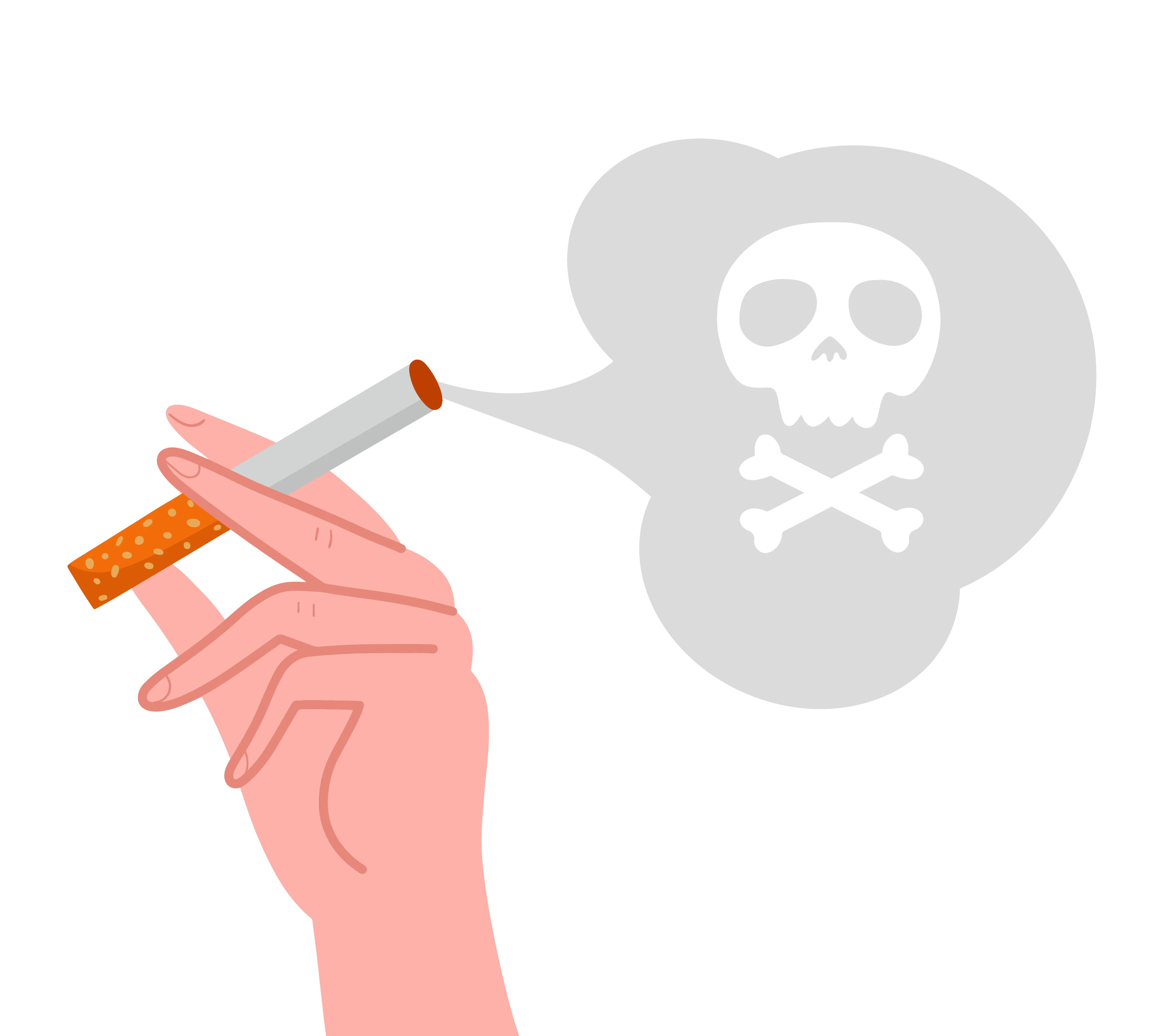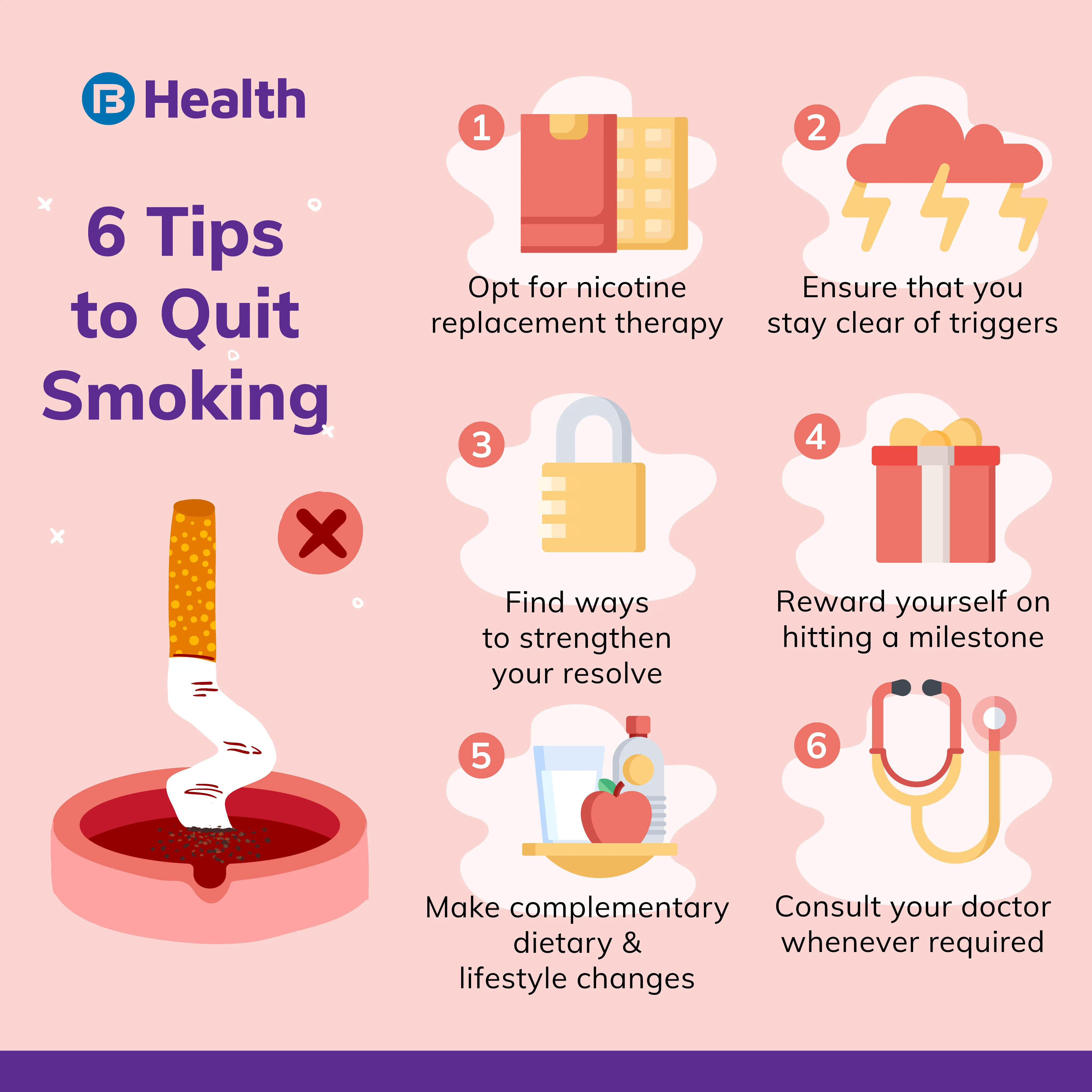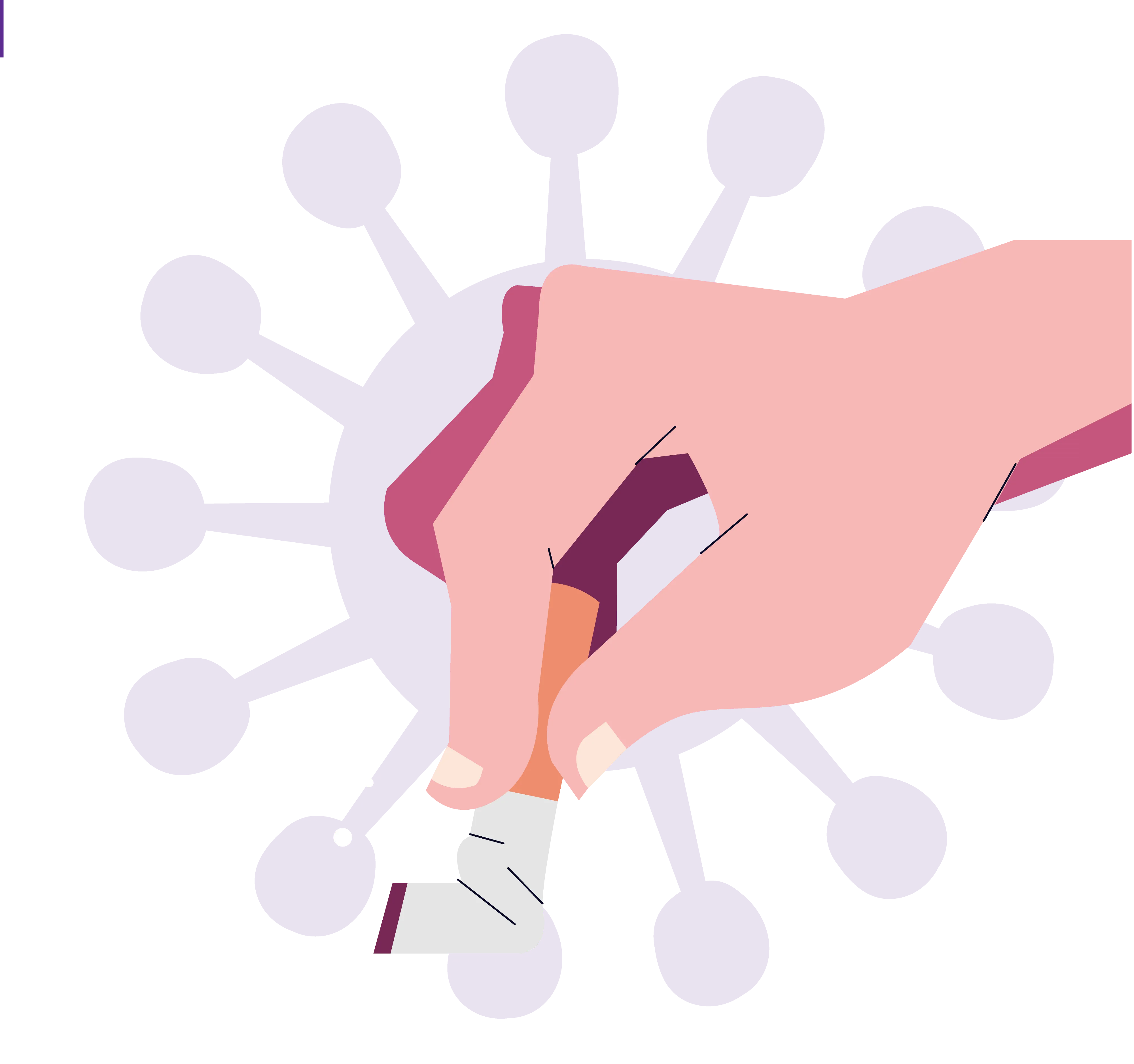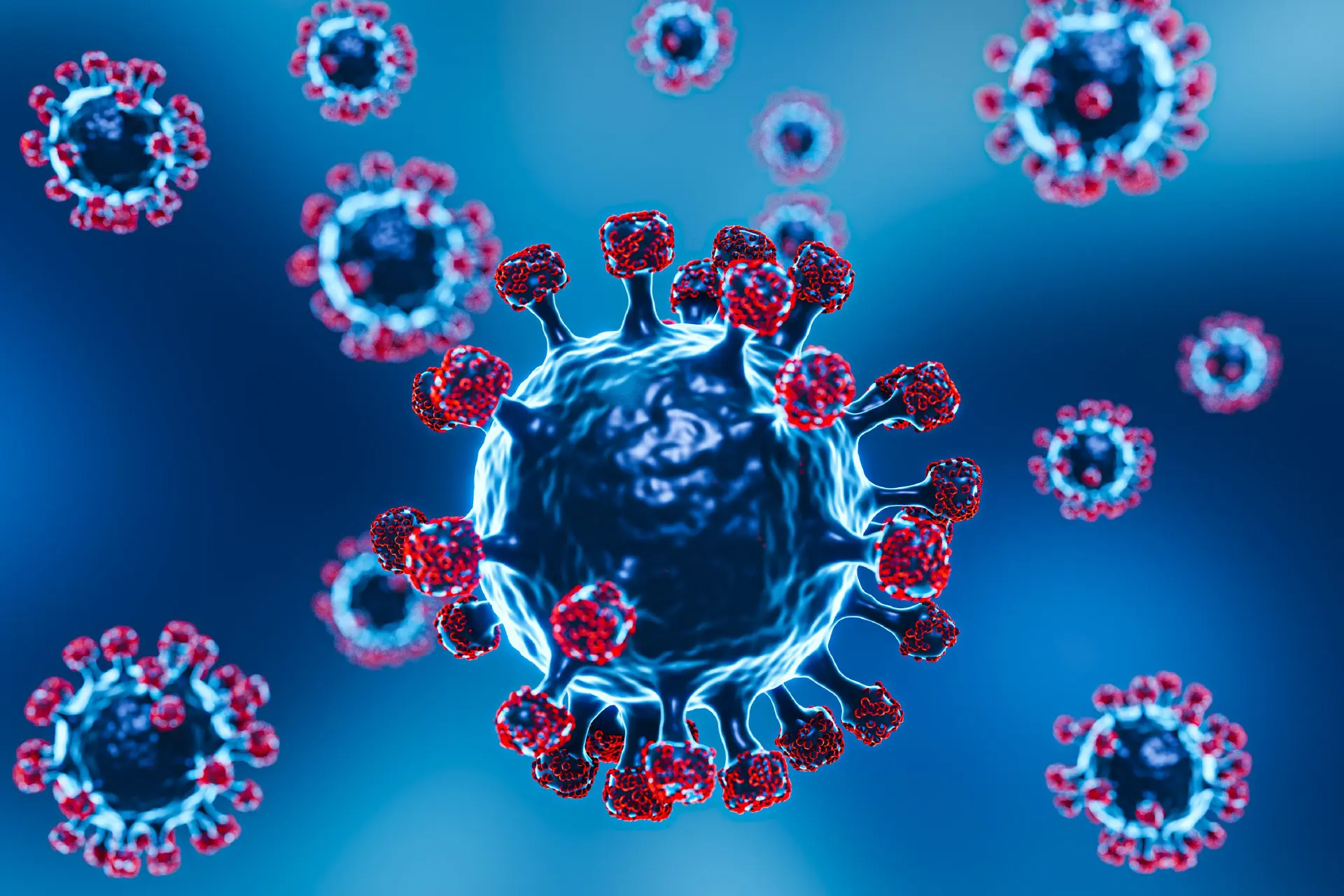Covid | 5 min read
How to Quit Smoking? Tobacco's Side Effects on Immunity to Fight Against COVID-19
Medically reviewed by
Table of Content
Key Takeaways
- When it comes to COVID-19, tobacco use increases your infection risk
- Ill effects of smoking include diabetes and erectile dysfunction
- Vaping and e-cigarettes are as harmful as tobacco use
There was little information about COVID-19 early on. But with more research today, you can find out a lot about it. Earlier, there were a lot of myths around this disease. Some pseudo studies suggested that smoking could have a shielding effect against COVID-19. However, experts have proven this incorrect.
Smokers are actually at high risk of developing COVID-19. Smoking reduces lungs capacity, which can cause respiratory illnesses. Coronavirus affects the lungs. As a result, already weakened lungs can further hamper the body's ability to fight it.
There are many known ill effects of smoking. But the negative impact of tobacco use on the immune system is adverse. When it comes to COVID-19 tobacco use can be specifically harmful to your health. Read on to know more.
Additional read: 6 Crucial Breathing Exercises for a COVID Survivor to Increase Lung Capacity

What are the ill-effects of smoking?
During the outbreak of COVID-19 tobacco use increases your susceptibility to the disease. The nicotine found in tobacco is immunosuppressive, which means it disrupt cell signalling and other activities. This impairs the immune system’s ability to fight pathogens. Moreover, smoking tobacco compromises the equilibrium of the immune system. This puts you at risk of developing autoimmune diseases. Smoking also depletes antioxidants in the bloodstream that are necessary for a healthy immune system. This increases your susceptibility to many diseases, including COVID.
Even without the risk of coronavirus, the ill effects of smoking on the body are profound. Tobacco products have toxic substances like tar, nicotine, carbon monoxide, and acetone. Inhaling these substances affect not only the lungs, but also the entire body. It is a known fact that smoking reduces lung capacity. Additionally, it also affects the central nervous system, cardiovascular system, and immune system.
Additional Read: Exercise to Improve Lung Health
Here are some of the ill-effects of smoking.
Lung cancer: This is no surprise. Smoking is the most common cause of lung cancer. Moreover, lung cancer is the most common cause of cancer death among men and women. [3]
Early-onset of menopause: Smoking can cause early onset of menopause among women. It also increases the severity and frequency of hot flashes.
Erectile dysfunction and infertility: Smoking constricts blood vessels. For men, a strong and lasting erection requires strong blood flow. But, narrowed blood vessels restrict blood flow, causing erectile dysfunction. Smoking also leads to infertility in both men and women.
Loss of vision: Deteriorating eye health is a long-term impact of tobacco use. Smoking increases your chances of contracting cataracts, glaucoma, and macular degeneration.
Irritability and anxiety: This is common when you decide to quit smoking. Nicotine withdrawal can put you on edge, causing stress.
Smoking has no shielding effect against COVID-19. Moreover, it increases your risks for numerous health complications. So, ensure that you quit this unhealthy habit soon.

Are alternative options like vaping safer?
Vaping or e-cigarettes started as an aid to reduce or stop smoking. But no research shows that vaping is a safer alternative to tobacco usage. Both smoking and vaping are harmful to your health. This is because both involve inhaling nicotine, though e-cigarettes claim to have less nicotine. None of them, however, is good for your health. Both weaken your lungs and affect your respiratory system. So, if you switched to vaping or smoking e-cigarettes to quit smoking, you still are open to the same health risks. Instead, try to completely stop smoking.
Why is now the perfect time to quit smoking?
Quitting smoking can be difficult, but the health of your lungs should be your top priority. Here are the reasons why this is the ideal time to quit.
Reduced social triggers due to social distancing restrictions
With many people staying home, even over the weekend, you are less exposed to social cues that may trigger the need to smoke. With fewer social cues, you can quit smoking without constant temptation.
Strong motivation to quit
You already know most of the ill effects of smoking. However, the fatality rate of COVID-19 is a strong reason to stop smoking and improve your health. For the sake of your loved ones and your own life, take this opportunity to reduce your risk of contracting COVID-19 and quit smoking.
Flexibility to change your routine
Quitting smoking is difficult and requires several lifestyle changes. You need to ensure that you remove all triggers that tempt you to smoke. This was difficult earlier, but easier now with most of us working from home. You can now add exercise, yoga, and other necessary changes to your routine with ample time on hand.

How to reduce the impact of tobacco use if you can’t quit?
While quitting smoking is essential, the pandemic has been stressful for many, leaving them unable to go forward with the resolution. But, smoking is still lethal. Instead of stopping all of a sudden, at least reduce your frequency of smoking. You can also resort to nicotine patches and gums to fulfill your tobacco craving.
Additional reads: Home Healthy Diet for COVID Survivors: What Foods Boost your Immunity?
Doctors believe that quitting tobacco is your best coronavirus care option. This can help you improve your physical and mental health. Create a healthy routine and start exercising daily, doing yoga, and learning breathing techniques. They will not only help you quit smoking, but also improve your lung health. Book an appointment with a specialist on Bajaj Finserv Health for coronavirus care or to get tips to stop smoking. You can opt for an in-person consultation or you can choose a teleconsultation with the best doctors. This way, you can always put your health first.
References
- https://www.nature.com/articles/s41533-021-00223-1
- https://www.ncbi.nlm.nih.gov/pmc/articles/PMC7674071/
- https://www.cancer.net/cancer-types/lung-cancer-non-small-cell/statistics
Disclaimer
Please note that this article is solely meant for informational purposes and Bajaj Finserv Health Limited (“BFHL”) does not shoulder any responsibility of the views/advice/information expressed/given by the writer/reviewer/originator. This article should not be considered as a substitute for any medical advice, diagnosis or treatment. Always consult with your trusted physician/qualified healthcare professional to evaluate your medical condition. The above article has been reviewed by a qualified doctor and BFHL is not responsible for any damages for any information or services provided by any third party.





